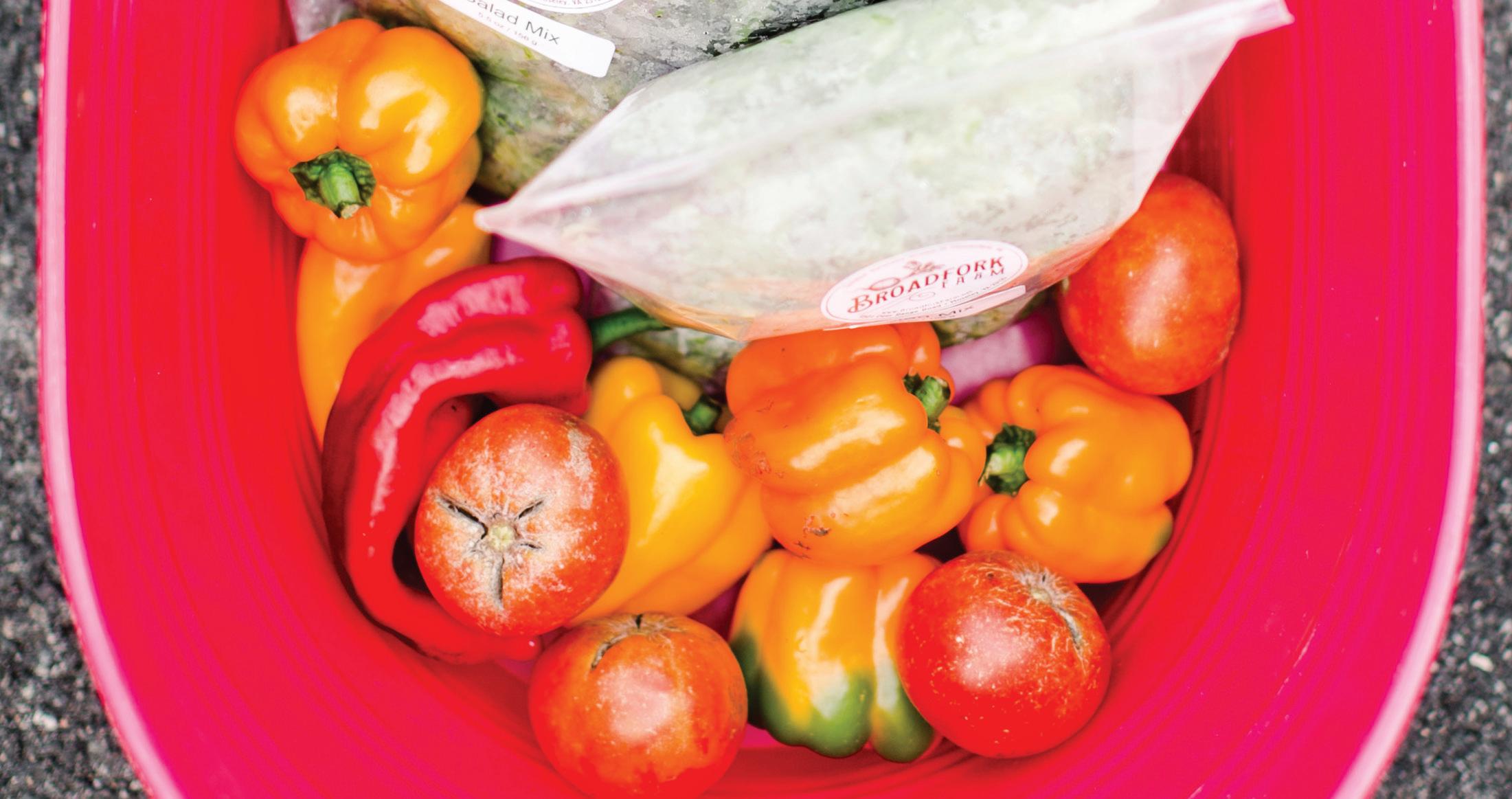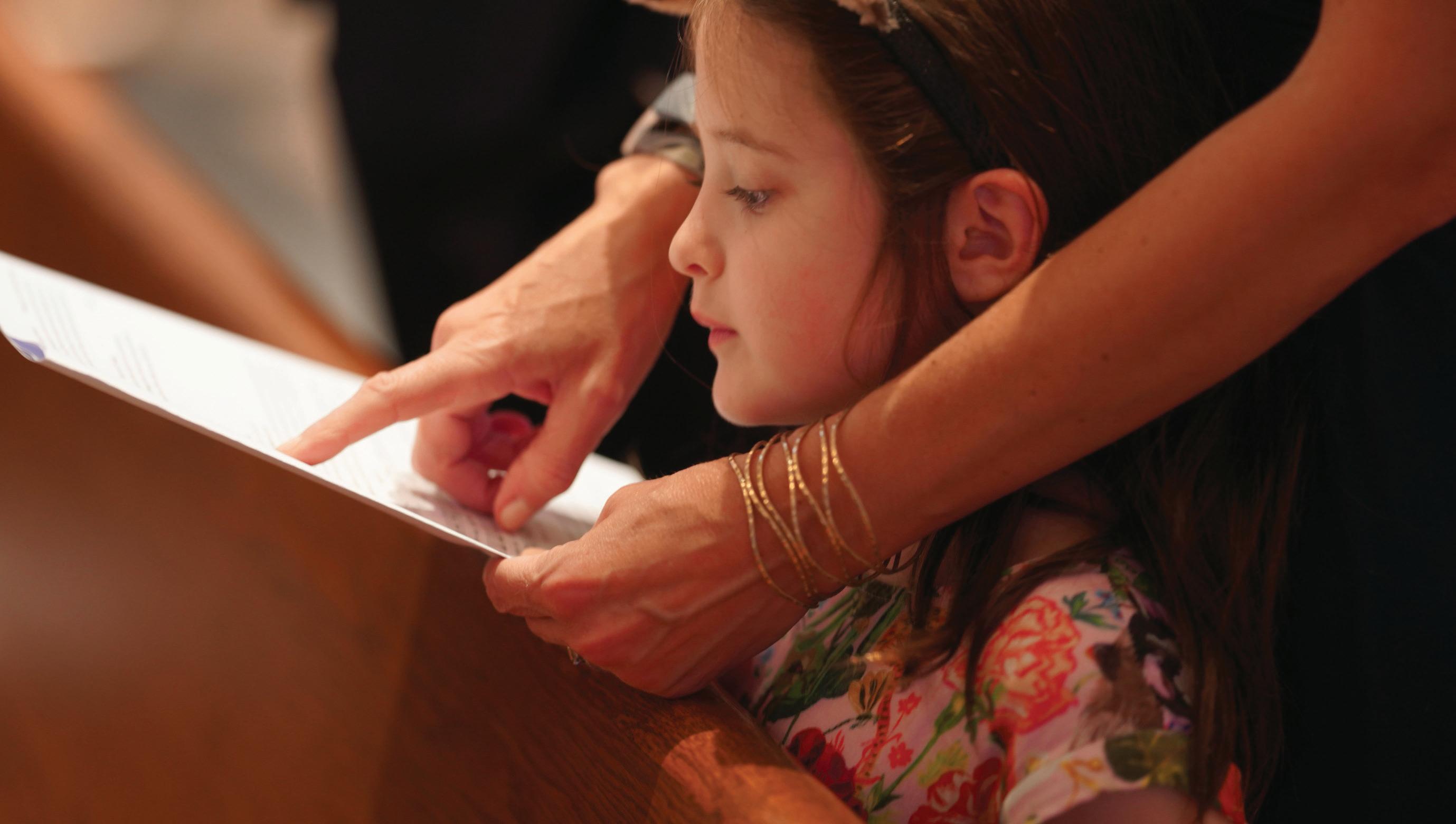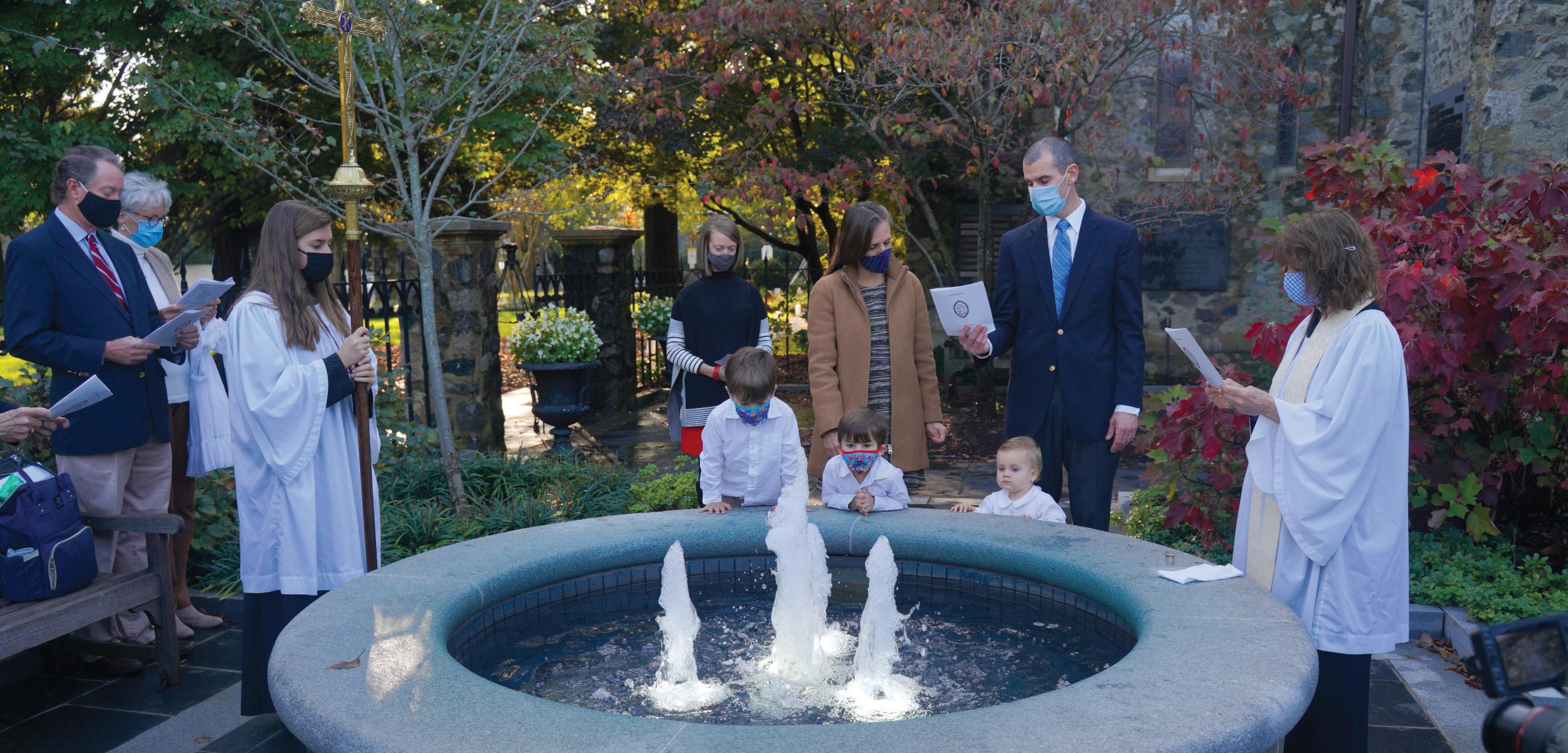
3 minute read
The many dimensions of our food ministry
Feeding one another
St. Stephen’s comprehensive food ministry has many facets By Cate Anthony
The Bible talks about food. A lot. Agriculture and care of the land are two primary themes of the Hebrew Bible. In the New Testament, Jesus uses imagery of food and agriculture over and over again in his parables and explanations of God’s action in the world. We often think of the kingdom of God as a heavenly banquet, and Jesus himself ties the very act of eating bread and wine to such a divine meal. These scriptural references to food form the basis for much of our prayer life: in the Lord’s Prayer, we ask God to “give us this day our daily bread” and in the celebration of the Holy Eucharist we gather together for a meal.
Food also plays a significant role in the church’s mission in the world, both in theology and practice. The Gospel directs us to feed Jesus’ flock—to care for those who need tending in this world. Theologically, we understand that this is a call for the church to extend beyond its four walls and into the community, as a beacon of care, resource, and hope. At St. Stephen’s, we practice this kind of mission throughout our ministries—and particularly with food! Through our outreach programs, we provide food for about 80 people and their families each week. The food pantry also assists Virginia Supportive Housing by weekly deliveries of 65 to 80 bags of food to folks in need in the Richmond community. St. Stephen’s fruit ministry volunteers pack between 115 and 143 bags of fresh fruit for delivery each week. And our kitchen ministry and and farmers market provide prepared food and fresh produce to people in need. We are answering Jesus’ command to “feed my sheep.”
We also knit eating together into the life of the St. Stephen’s community, through both the weekly Wednesday and Sunday night dinners which take place during non-pandemic seasons of the church, as well as the Café at St. Stephen’s. In each of these settings, our actions mirror Jesus’ gatherings with his own community. Our Lord loved a dinner party: he ate with his friends, and also with sinners and tax collectors and even the Pharisees. In all of these contexts, relationship and faith-building conversation took place around the dinner table, helping to bolster and strengthen communal life. During non-pandemic times, our dinners—and during the pandemic, outdoor, safely distanced Café lunches—do much the same, allowing space for us to gather with friends, as well as to break bread with those we may not otherwise encounter in the daily course of life. In all cases, St. Stephen’s feasts together—not only on good food, but on the grace of God and love of one another.
In these different settings, food—like a full and thriving relationship with God—nourishes. Food makes us strong, gives us energy to do our daily work, draws us closer to our heritage, and offers a common ground from which to talk about faith and life. The prophet Isaiah exhorts all those who love God to “Listen, listen to me, and eat what is good, and you will delight in the richest of fare.” Food is good, period—and it is even better when sharing food is practiced in faith, because this food is the kind that enriches not only our bodies, but also our souls. We continue to seek new ways to incorporate food into the ministries and fellowship of St. Stephen’s, and welcome any ideas you might have. Once it’s safe to gather, I can’t wait to be at a dinner table with you all! ✤
The Rev. Cate Anthony is an associate priest at St. Stephen’s, and a talented chef who—had she not pursued ordination—would have gone to culinary school. Her arrival at St. Stephen’s came during our pandemic “lockdown,” so she has yet to experience the Sunday Community Supper, Wonderful Wednesdays, or any of the other communal meals we usually enjoy.









